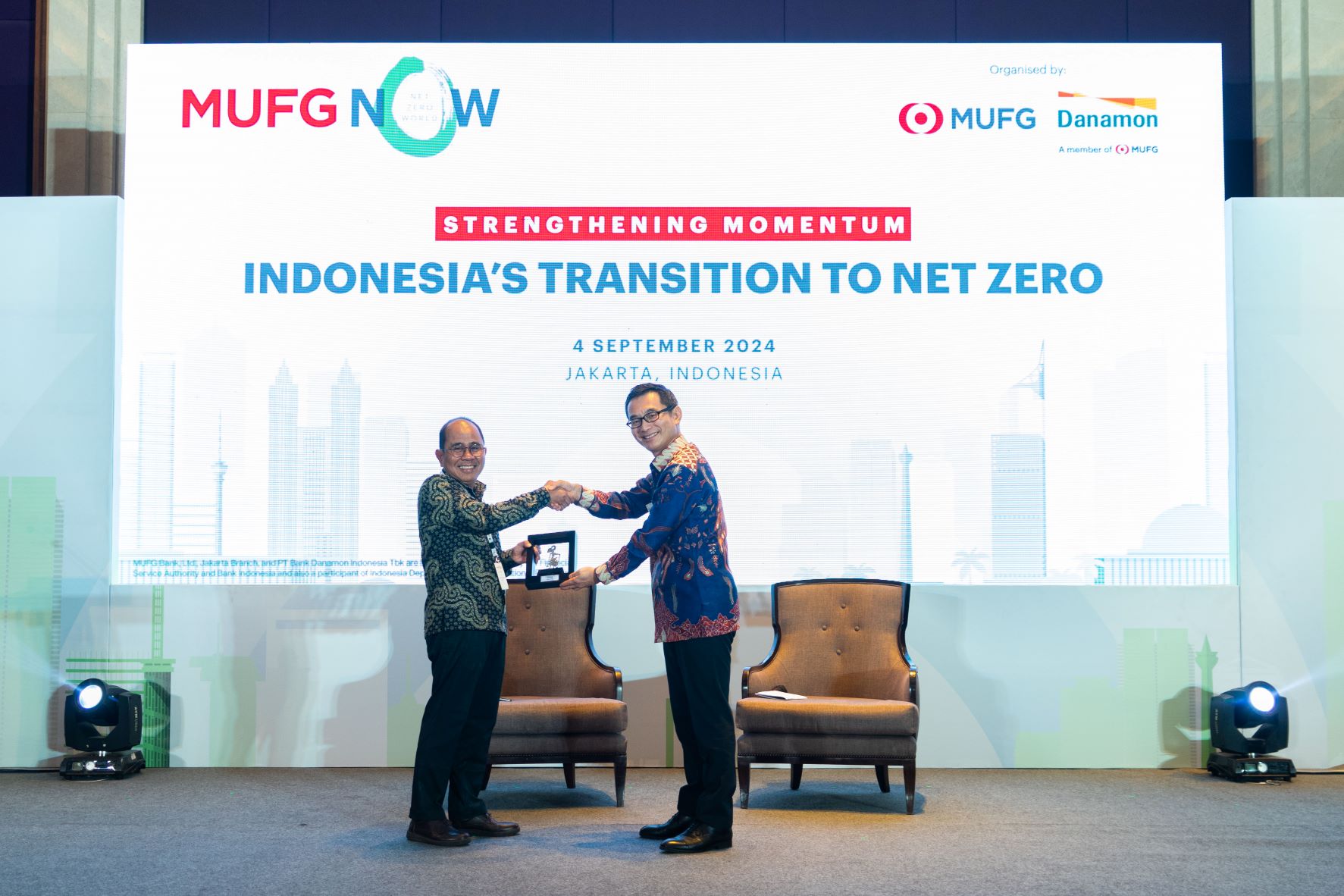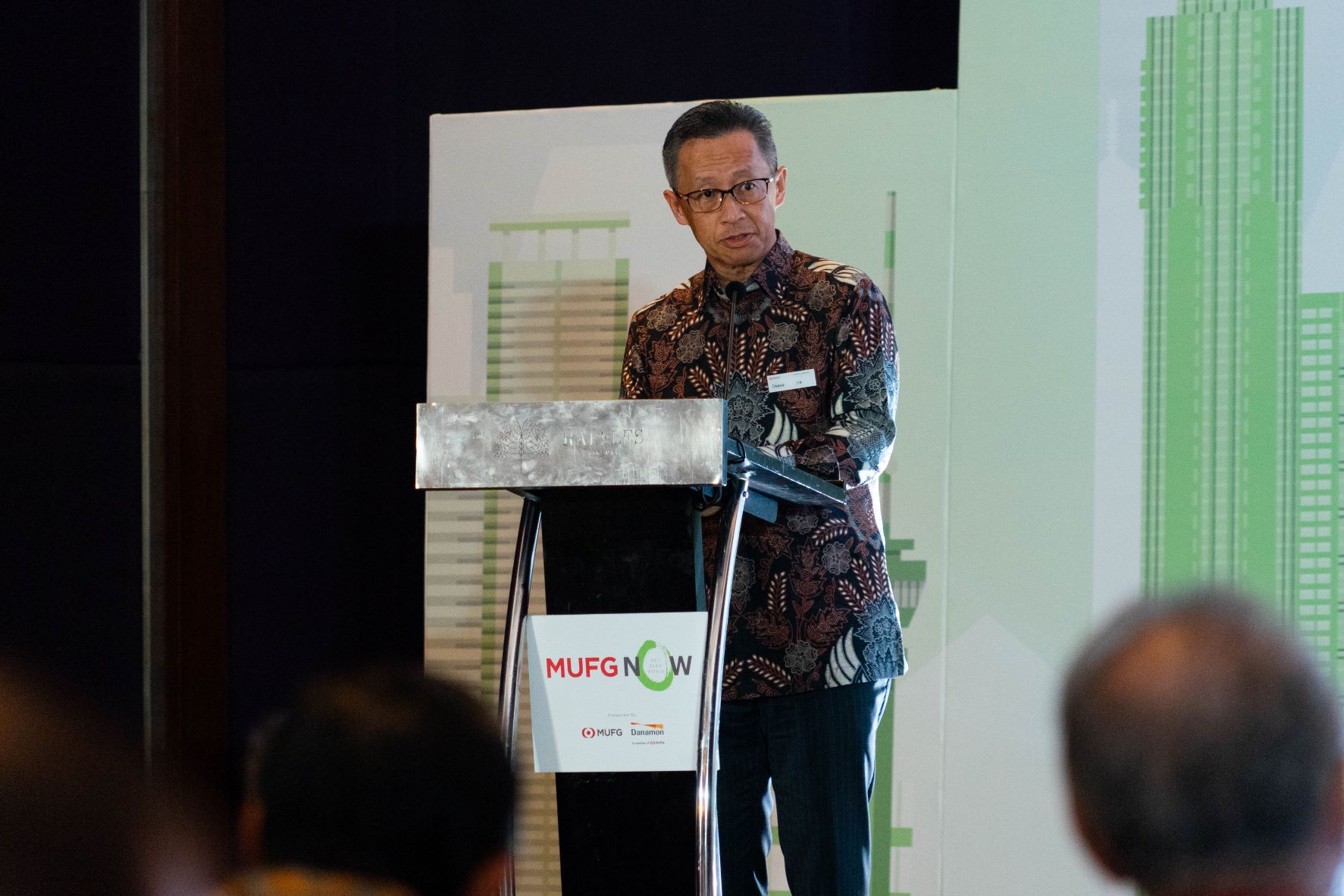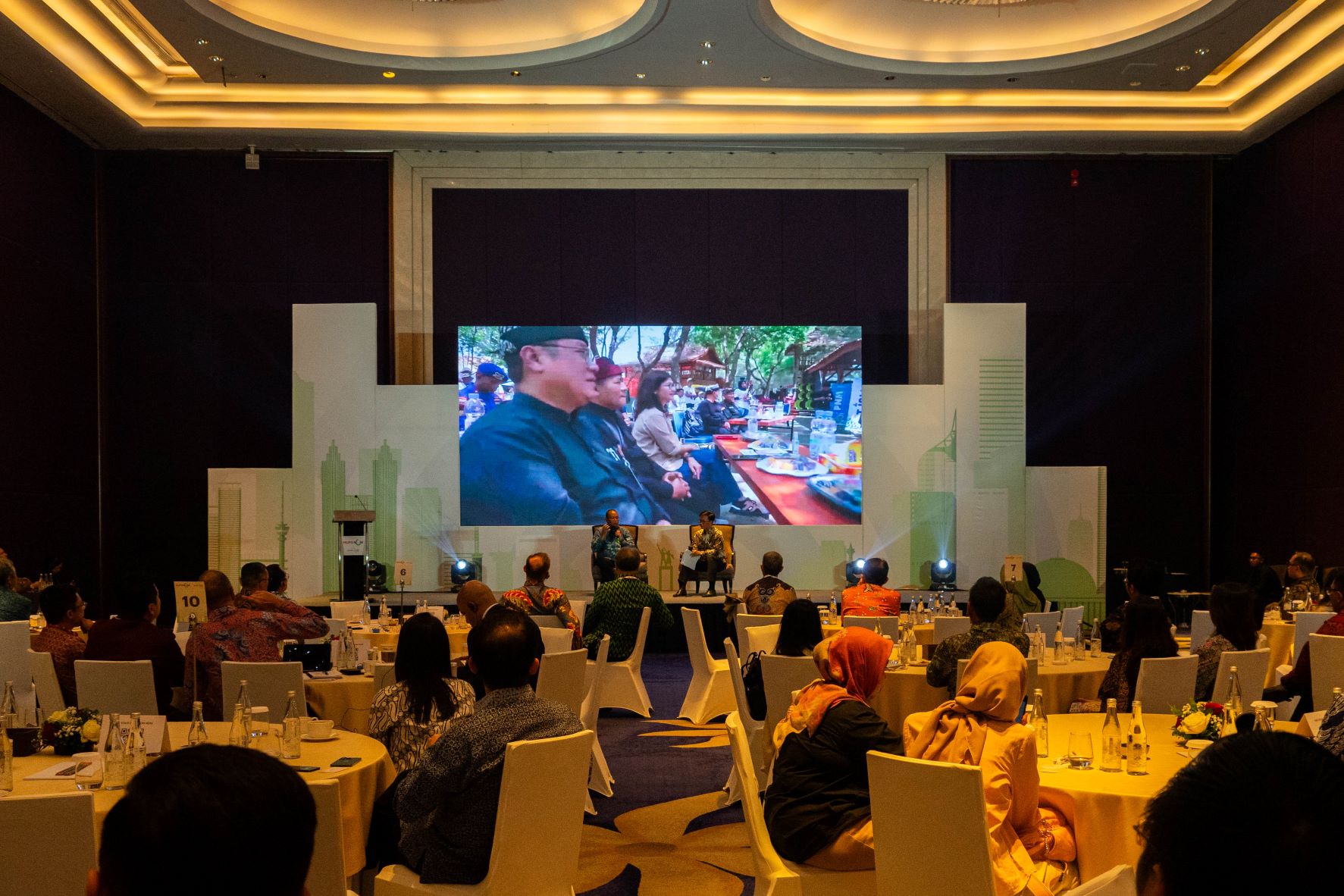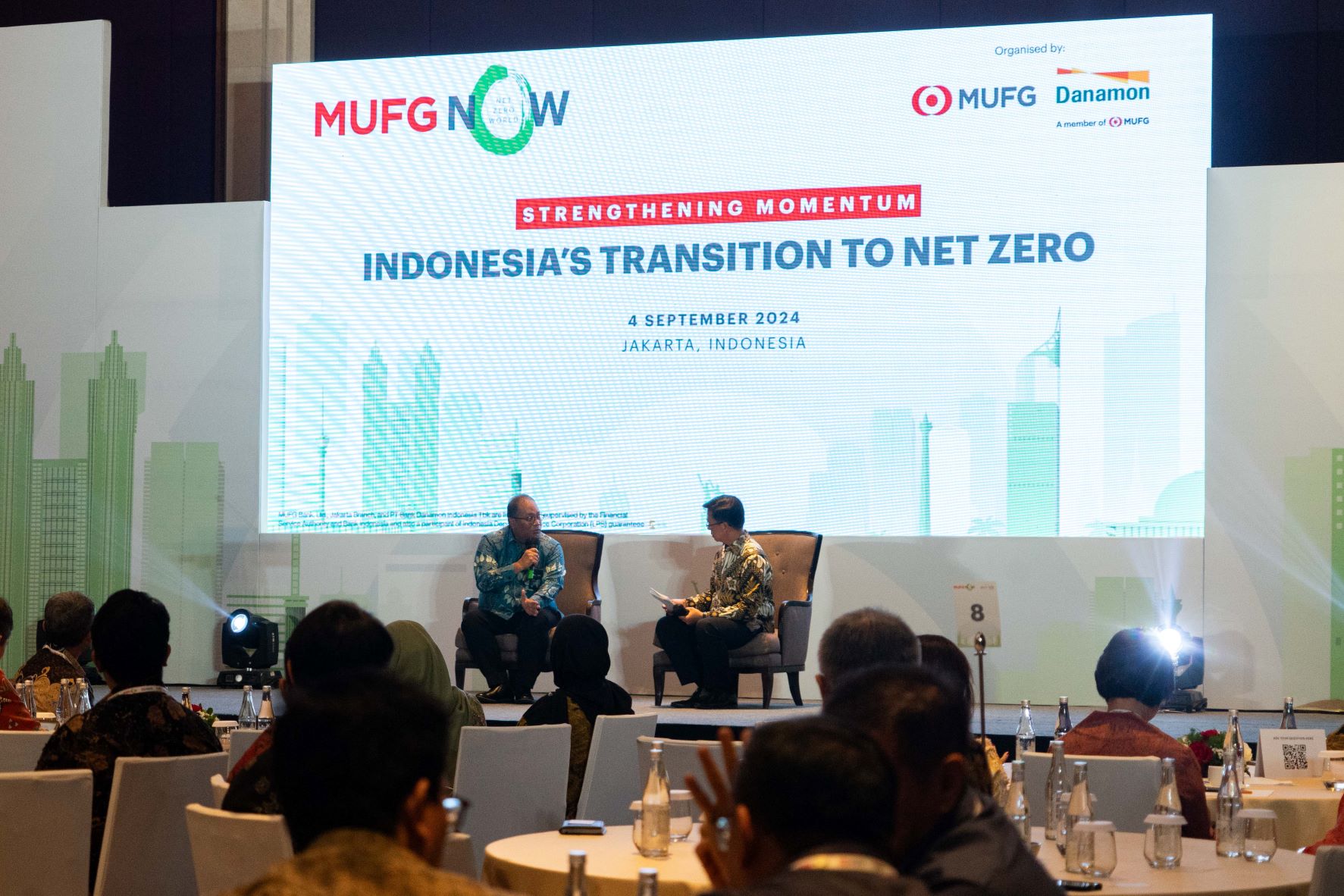
How the private and public sectors should unite in helping Indonesia meet its NDCs (nationally determined contributions) and economic development formed the backdrop of the recent MUFG N0W (Net Zero World) in Jakarta. Held in conjunction with strategic partner Bank Danamon, the Indonesian leg of the well-received regional thought leadership showcase is MUFG’s ninth in the Asia Pacific and the first in the country, drawing close to 200 business leaders and senior policymakers.
Juda Agung, Deputy Governor of Bank Indonesia, in his keynote speech, reiterated the crucial role of banks in driving transformation: “There are four key strategies for banks to support (Indonesia’s) transition: clear and objective targets, integrating climate risk into core operations, expanding sustainable finance offerings, and strengthening governance and accountability. The climate transition is not only an environmental imperative, but also a strategic opportunity for Indonesia’s financial sector.”


MUFG has been working with all stakeholders to accelerate the decarbonisation of Indonesia’s power and hard-to-abate sectors through global initiatives such as Indonesia’s JETP (Just Energy Transition Partnership). The bank has also played a leading role in large and impactful transactions in the country, the most recent of which is the issuance of a USD2.35-billion sukuk for the Indonesian government, a portion of which is a green bond. It has also piloted innovative solutions, such as an ESG deposit, to bridge the growing demand for products that would help corporates better contribute to environment and society.



